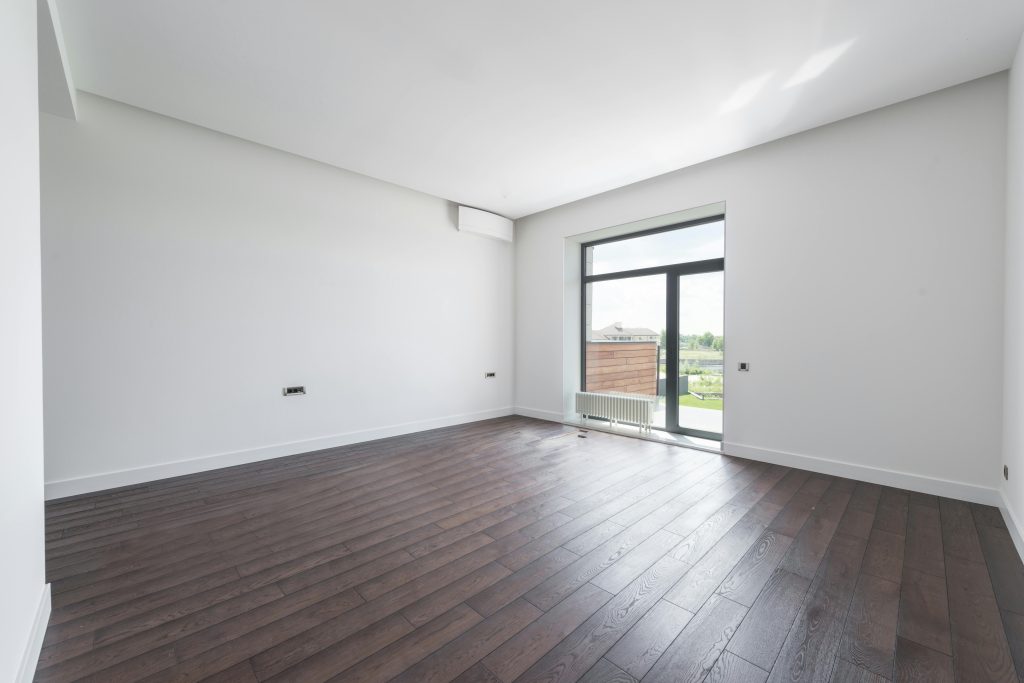Inheriting a family home should be a blessing. Instead, it often turns into a full-blown dispute when one sibling refuses to sell.
Maybe they’re living there. Maybe it’s sentimental. Or maybe they just don’t want to let go — even if the rest of you are ready to move on.
If you’re stuck in a property stand-off, don’t panic.
This guide walks you through every practical step you can take to resolve the situation.
From understanding the legal framework to exploring compromise solutions, and even forcing a sale through the courts if it comes to that.
Important: This guide shares practical insights from our experience helping families navigate inherited property sales. It is not a substitute for professional advice. For your specific legal situation, always consult a qualified solicitor. For tax matters, speak to an accountant or tax advisor. Tax rates and thresholds change regularly — always verify current figures before making decisions.
Here’s what you’ll learn:
- How to work out your legal rights (joint tenants vs tenants in common)
- How to open up communication without it blowing up
- What to do if one sibling wants to stay in the house
- How a buy-out works — and how to calculate it fairly
- Your options if it gets legal: including TOLATA
- Tax considerations to be aware of before making any decision
- A step-by-step resolution roadmap
- When and how to use Property Rescue to exit fast (if you need to)
Let’s start by getting crystal clear on the law, because that’s the foundation for everything else.
Co-Owning an Inherited House: The Legal Basics You Need to Know
Before you start drafting offers or arguing over sale prices, you need to understand how the property is legally owned.
Because whether you’re joint tenants or tenants in common? That makes a massive difference.
Let’s break it down.
Joint Tenants: Everyone Owns Everything Together
If the inherited property was registered in joint tenancy, that means:
- No one owns a specific share — you all own 100% together.
- You must all agree to sell. Even one sibling saying “no” puts a stop to everything.
- If one of you passes away, their share automatically goes to the other(s), not through their Will.
This type of ownership is more common with spouses than siblings, and it’s less flexible when people don’t see eye to eye.
Want out? You’d need to sever the joint tenancy first, which can be done unilaterally (more on that in a moment).
Tenants in Common: Defined Shares and More Flexibility
If you’re tenants in common, each sibling owns a specific percentage of the property — maybe 50/50, or 60/40, depending on what the Will or family agreement says.
This setup means:
- You can each leave your share in a Will.
- You can transfer or sell your share (though in reality, that’s difficult without cooperation).
- You can force a sale — either through agreement or, if things get ugly, via court.
This is usually the default setup when siblings inherit property, and it’s far more practical if people want to do different things with the house.
How to Check What Type of Ownership You Have
Don’t guess — always check.
You can find out by downloading the property’s Title Register from HM Land Registry using their Search for land and property information service. A title register costs £7 and takes just minutes to obtain.
Look at the Proprietorship Register (Section B). If you see a note like:
“No disposition by a sole proprietor… without an order of the court”
…then you’re tenants in common.
If it’s silent or doesn’t mention individual shares, it’s probably joint tenancy. A solicitor can confirm for you.
Can You Change It?
Yes — and here’s the important thing to know: you don’t need anyone’s permission to sever a joint tenancy.
All it takes is a formal notice of severance, which you file with HM Land Registry. Once complete, you’ve converted the ownership to tenants in common. That means you now own a distinct share, which opens the door to selling or applying for a court-ordered sale later on.
Tip: This won’t force a sale by itself, but it’s an essential step if things are heading in that direction.
Real example: Three siblings inherit their mum’s house. They register as tenants in common, each holding one-third. Eventually, one wants to cash out. Her brother buys her share, keeping it in the family. No solicitors. No court. Just a simple agreement — possible because they structured the ownership correctly from the start.
Early Steps to Break the Deadlock (Without Lawyers)
You’ve confirmed the ownership structure. You’ve read the Will. And now you’re staring down a wall of silence or stubborn refusal from your sibling.
Here’s what to try before this turns into a solicitor’s letter.
1. Start With a Proper Conversation
It sounds obvious, but you’d be surprised how many families skip the honest chat and go straight into passive-aggressive standoffs.
So before you talk court or threats, do this:
- Schedule a proper sit-down or video call — not a rushed phone call.
- Make it neutral: no accusations, no raised voices.
- Ask questions. Why don’t they want to sell? Is it emotional? Practical? Financial?
- Explain your side too — maybe you need your share to pay off debts or move on.
Even if you’ve tried this before, try again with a calmer tone and clear goals.
Sometimes what sounds like refusal is really fear, uncertainty or grief.
2. Suggest Mediation (Early, Not Late)
If talking gets you nowhere, or the tension’s too much, then it’s time to bring in a mediator.
This isn’t just for messy divorces. Family mediation is common in inheritance disputes and can be surprisingly effective.
Here’s what a mediator does:
- Facilitates structured discussion (you don’t talk over each other)
- Helps you both explore solutions without choosing sides
- Guides you toward a practical agreement (e.g., buy-out, delayed sale, renting)
Important: It’s voluntary and confidential. No pressure. But it shows you’re serious and fair.
Many families resolve seemingly hopeless disputes in one or two sessions.
3. Get the House Valued — Together
Don’t argue over fantasy numbers. Get hard facts.
Book a RICS-accredited surveyor or ask a few local estate agents for a written appraisal.
Why this matters:
- It removes guesswork (and ego) from the price discussion
- It helps set buy-out figures, rent levels or fair market value
- It often calms people down — especially if they were clinging to unrealistic expectations
Pro tip: If you’re planning a buy-out or preparing for court, always get at least two independent valuations.
Learn more about how estate agents value property.
4. Test for a Compromise
Use the valuation as a springboard for compromise. Ask:
- Could one sibling buy out the others?
- Could you rent the house for now and revisit the sale later?
- Could you delay selling for six months to let someone prepare to move out?
The point is to explore every workable option before dragging it to court.
If your sibling feels heard — and not cornered — they might agree to a structured exit, rent arrangement, or gradual buy-out.
Real example: Two brothers inherit a flat. One wants cash, the other wants to stay. After weeks of arguing, they agree on a 2-year plan: the one staying pays rent and agrees to a future sale date. It gives everyone breathing space — and avoids court entirely.
What to Do If Your Sibling Still Refuses: Legal Options That Get Results
If you’ve tried talking. Tried mediation. Tried compromising. And still… nothing?
It’s time to bring in legal advice.
This doesn’t mean going nuclear right away. There are measured, strategic steps you can take to push things forward without jumping straight into court.
Step 1: Get a Solicitor Involved and Send a “Letter Before Action”
Once you’ve exhausted informal solutions, your first legal move is usually a letter before action.
This is a formal letter written by a solicitor, and it does three things:
- Spells out your intention to sell
- Outlines the legal basis for doing so (usually under the Trusts of Land and Appointment of Trustees Act 1996 — commonly known as TOLATA)
- Gives your sibling one last chance to resolve things voluntarily
It’s firm. But not aggressive.
And sometimes, that’s all it takes.
When people receive an official letter quoting legal rights and potential court costs, they suddenly become much more willing to talk.
Step 2: Offer a Buy-Out (One Last Time)
This is your final olive branch.
Tell your sibling they’ve got two options:
- Buy your share at a fair market rate (backed by formal valuations), or
- Agree to a joint sale so everyone walks away with their share
If they can’t or won’t buy you out — and won’t agree to sell — you’re not stuck.
That’s when you move to court.
Step 3: Apply for a Court-Ordered Sale Under TOLATA
This is the last resort — but a powerful one.
Under Section 14 of the Trusts of Land and Appointment of Trustees Act 1996, you can apply to the court for an “Order for Sale”.
In plain English? You’re asking a judge to force the sale of the property and divide the proceeds according to each person’s share.
The court will consider (under Section 15):
- The intentions of the person who left the property (from the Will or estate)
- The purpose of the trust (e.g., was the house meant to be a home, or just an asset?)
- The welfare of any children or vulnerable people living there
- The interests of all co-owners — not just the one refusing
If your sibling is living in the property with young children or has no other home, the court may delay the sale — but it very rarely refuses it outright.
Most of the time, judges support the principle that no one can be forced to remain a co-owner forever.
What Happens Next?
If the court grants the order:
- The property will be sold (either on the open market or via a structured buy-out)
- The proceeds will be split according to ownership shares
- The court may appoint someone (often a solicitor) to manage the sale if trust is completely broken
Just be warned: this route takes time, potentially 6–12 months or longer, and costs money (legal fees, court costs, valuations). But sometimes, it’s the only way to break the deadlock.
What the Process Typically Looks Like
Here’s a rough outline of what to expect (timescales are approximate and vary by case):
| Step | Action | Typical Timescale |
|---|---|---|
| 1 | Instruct a solicitor | Week 1 |
| 2 | Letter Before Action sent | Week 2 |
| 3 | Court application submitted | Month 2 |
| 4 | Directions hearing (admin setup) | Month 3–4 |
| 5 | Mediation (sometimes ordered by court) | Month 4–6 |
| 6 | Final hearing | Month 6–12 |
| 7 | Order granted and enforced | 1–2 months post-judgement |
Bear in mind, this could take a year or more — longer if it’s heavily contested or involves children.
Legal Costs and Risks
Court proceedings aren’t cheap.
- You’ll pay for a solicitor (and potentially a barrister)
- You’ll need to cover court fees, valuations, and possibly expert evidence
- If you lose, the court could order you to pay your sibling’s legal costs too
According to specialist property solicitors, costs can range from £2,000 to £20,000 or more — depending on whether the matter settles early or proceeds to a full hearing.
That said, many cases settle before trial once proceedings start. Simply filing a TOLATA claim often jolts the other party into negotiating seriously.
Alternatives to a Forced Sale: Creative Ways to Resolve the Stalemate
Dragging a sibling to court might feel like the only option, but it’s rarely the best starting point.
In many cases, a bit of creative thinking and flexibility can unlock a resolution before the lawyers rack up serious fees.
Let’s look at your most practical alternatives.
1. One Sibling Buys Out the Others
The cleanest compromise? One person keeps the house. The others walk away with their fair share in cash.
Here’s how a buy-out works in practice:
- Get one independent RICS valuation (ideally 2 or 3 valuations if using estate agents)
- Deduct any liabilities (like outstanding mortgages or debts)
- Calculate each person’s share of the remaining equity
- The sibling staying agrees to pay the others their share of that equity (this can be via savings or a mortgage)
Example:
If a property is worth £300,000 and you each own a third, the sibling staying would pay £100,000 each to buy out the other two.
What to be aware of:
- Stamp Duty Land Tax: The buying sibling may need to pay SDLT on the value they’re acquiring. According to GOV.UK, SDLT applies on residential property purchases above £125,000 (as of April 2025). Use the HMRC SDLT calculator to check what may apply in your situation.
- Capital Gains Tax: If the property’s value has risen since you inherited it, the selling sibling may owe CGT on their share. A tax advisor can help you understand your specific situation.
Tip: Put the agreement in writing. Get a solicitor to draw it up properly — it avoids disputes later.
2. Formal Occupation Agreements
If one sibling insists on staying put — but can’t afford a buy-out yet — consider a short-term licence to occupy.
This is a legally binding agreement where:
- The resident sibling pays “occupation rent” to the others (usually at a fair market rate, split according to ownership)
- Everyone agrees how long the arrangement will last
- There’s a clear path to sale or buy-out after that timeframe
This isn’t a casual arrangement — you’ll want something in writing to avoid future drama.
Good for: Families who need a breather before making big decisions.
Not good for: Situations where one sibling is already refusing to pay anything or engage in discussion.
3. Rent It Out and Split the Income
If you can’t agree to sell or buy out — and no one wants (or can afford) to live there — why not rent it out?
This works especially well if:
- The property’s in decent condition
- You want to hold off selling due to poor market conditions
- You need time for one sibling to sort their finances
How it works:
- Get a letting agent to handle the rental process
- Split net rental income according to ownership shares
- Agree who manages what (e.g., maintenance, landlord duties)
Just note: Rental income is taxable. According to GOV.UK, each sibling needs to report their share to HMRC (there’s a £1,000 property income allowance per person).
4. Sell Your Share (If You’re Desperate to Exit)
This isn’t ideal — but if you’re truly stuck, you can try selling your share in the property.
The catch? It’s notoriously difficult.
Very few buyers want to own part of a house with a co-owner they don’t know. Investors may offer a discounted rate (often 40–50% of your share’s market value) since they will probably have to pursue court proceedings against the reluctant sibling.
So this move is usually more of a pressure tactic to encourage a reluctant sibling to buy you out.
5. Use a Quick Sale Company
If things are dragging out and you all agree to sell but you want a fast, hassle-free option in case anyone changes their mind, a cash home buying service could be the way out.
Companies like Property Rescue can:
- Offer a cash quote within hours
- Complete the sale in as little as 2–3 weeks
- Cover all legal fees
- Handle all the paperwork (and even help with clearing out the house)
You won’t get full market value — offers are usually 80–85% of what you’d get on the open market. But in messy disputes, speed and certainty can be worth more than squeezing every last pound.
Best for: Anyone who wants a rapid sale.
Tax Considerations: What to Discuss With Your Accountant
When you’re dealing with an inherited house, understanding the tax landscape is just as important as the legal framework.
You might think, “We’re just selling the house — why would HMRC care?”
Well, depending on how the inheritance was structured, how long you’ve held the property, and what you’re doing with it now, there may be several taxes to consider — or reliefs you didn’t know existed.
Important: Tax rules change frequently, and everyone’s situation is different. The information below is for general awareness only. Always consult a qualified accountant or tax advisor before making decisions.
Let’s outline the main considerations.
Inheritance Tax (IHT): Was It Already Paid?
When someone dies, their estate may owe Inheritance Tax before anything gets passed on.
According to GOV.UK:
- The standard IHT nil-rate band is £325,000
- An additional Residence Nil Rate Band of £175,000 may apply if the home is left to direct descendants (children, grandchildren)
That means a parent leaving their home to children could potentially pass on up to £500,000 tax-free (or up to £1 million for a married couple who can transfer unused allowances).
These thresholds are frozen until at least 2030, according to recent government announcements.
Important: Most estates pay IHT before assets are distributed. So unless the estate ran out of cash and left the bill to you, you probably won’t need to pay anything directly. But it’s worth checking with the executor.
Capital Gains Tax (CGT): When the Property Goes Up in Value
CGT may apply when you sell an asset that’s risen in value.
Here’s how it typically works with inherited property:
- You don’t pay CGT when you inherit the house
- You may pay CGT when you sell it, but only on the gain above the probate value (the value at the date of death)
Example:
- Probate valuation (when you inherited): £200,000
- Sale price three years later: £260,000
- Gain = £60,000
- If two siblings each own half, that’s a £30,000 gain each
You then deduct your CGT annual exempt amount — currently £3,000 for the 2025/26 tax year according to GOV.UK — and pay CGT on the remainder.
Current CGT rates on residential property (as of April 2025):
- 18% for basic-rate taxpayers
- 24% for higher-rate taxpayers
If the house is sold shortly after probate, there may be little to no gain — meaning little or no tax due, since the property value won’t have increased much.
But if one sibling delays a sale for years, and the property value increases substantially, that could mean a significant CGT bill when it finally sells.
For more details, check the GOV.UK guidance on CGT rates or read our guide on Capital Gains Tax when selling a house.
CGT Relief: What If One Sibling Lives in the House?
If a sibling moved in and used the inherited home as their main residence, they may be eligible for Private Residence Relief (PRR).
This can reduce or eliminate CGT on their share of the gain — but only for them.
The other siblings who didn’t live there? They would still owe tax on their share of the gain.
This is where things can get complicated. Because:
- One sibling may owe nothing
- The others may owe thousands
And if emotions are already running high, tax imbalances like this can tip the whole thing over. This is why getting professional tax advice early is so important.
Stamp Duty Land Tax (SDLT): If You Buy Out a Sibling
Buying your sibling’s share of the house?
You may owe Stamp Duty Land Tax even though you already co-own it.
According to GOV.UK, if you pay over £125,000 for their share, SDLT may apply just like any property purchase.
If you already own another residential property, the 5% additional property surcharge may also apply (increased from 3% in October 2024).
Example: You buy your brother’s 50% of a £300,000 home = £150,000. That’s over the SDLT threshold, so you may need to pay Stamp Duty. If you own another property, the surcharge would apply on top.
Use the HMRC Stamp Duty calculator to estimate what you might owe.
Here’s our detailed guide on SDLT rate changes.
Rental Income Tax: If You Let the Property Out
If you rent the house out while figuring things out (or as a long-term solution), remember:
- Rental income is taxable as income
- Each sibling must declare their share on their tax return
- You can deduct allowable expenses (repairs, letting agent fees, insurance)
- The first £1,000 per year per person is covered by the Property Income Allowance
Don’t Forget Council Tax and Empty Property Rules
If the property is sitting vacant — especially for more than 2 years — your local council may charge a premium on council tax.
And if one sibling is living there alone, they might be eligible for a 25% single occupancy discount.
These aren’t huge costs, but they add up — and are often completely overlooked during disputes.
Check out our guide on council tax for empty property.
How Property Rescue Can Help You Sell Fast
You’ve finally got your sibling in a good mood and they agreed to sell. Now it’s time to strike while the iron is hot, and before they change their mind.
Once you contact us, we’ll give you a free, no-obligation quote — usually within hours.
If you accept, we can:
- Exchange contracts in as little as 48 hours
- Complete the sale in 7–21 days, depending on your urgency
- Send funds directly to each sibling’s solicitor or bank account
This is ideal when:
- You need to settle an estate fast
- One sibling is dithering
- You want a guaranteed exit — not more waiting
We Cover 100% of the Costs
Most people forget that selling a house using the traditional route comes with its own set of costs:
- Estate agent commission (often £3k–£10k+)
- Solicitor fees
- Clearance or repairs
We cover all costs, and since we buy directly from you for cash, there’s no estate agent needed either.
Ready to Move On?
You can get a free, no-pressure cash offer today. No forms, no back-and-forth. Just a real conversation with someone who’ll help you move forward.
Get Your Free Cash Offer Now – Takes 30 seconds









